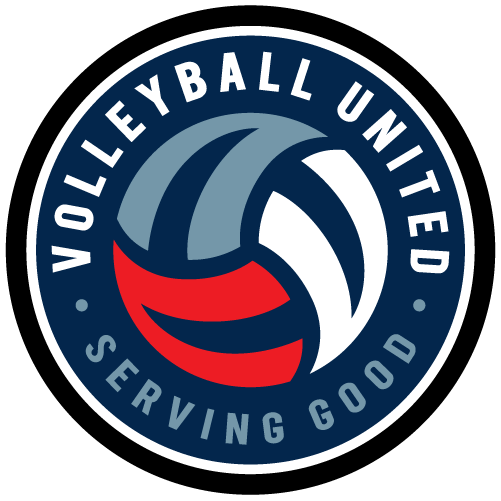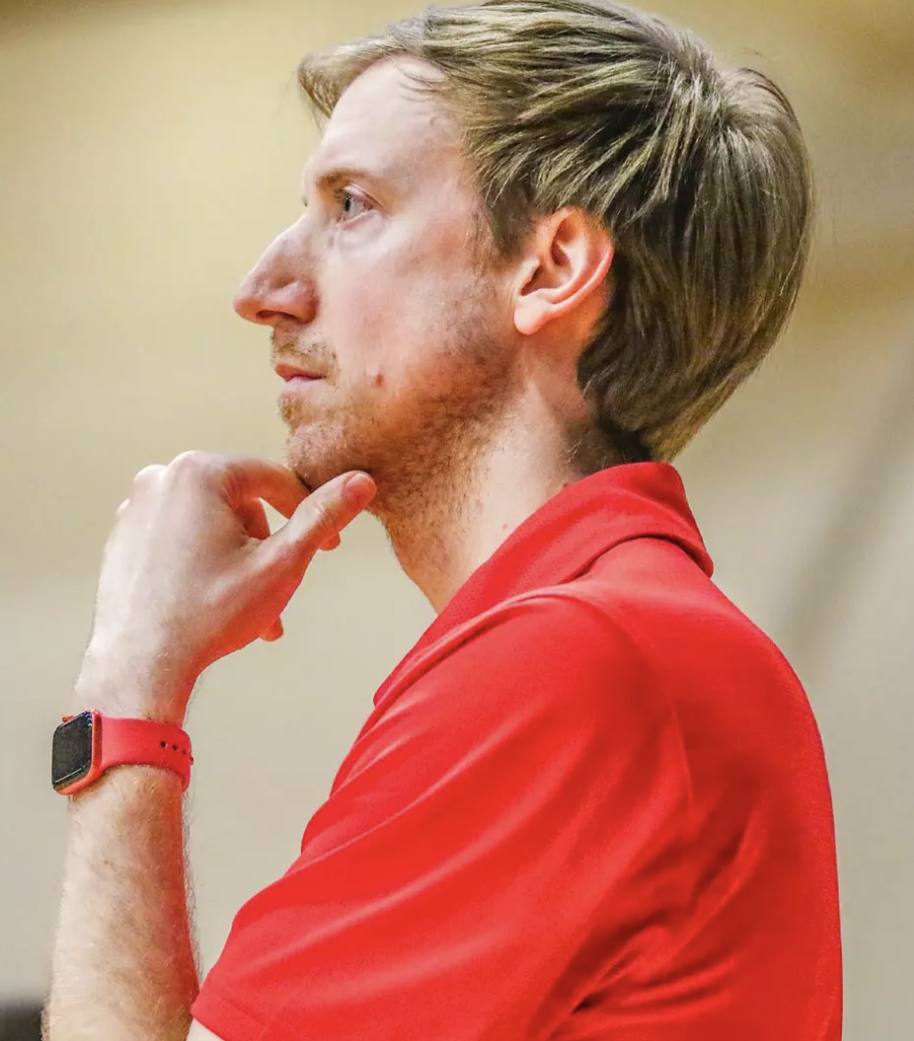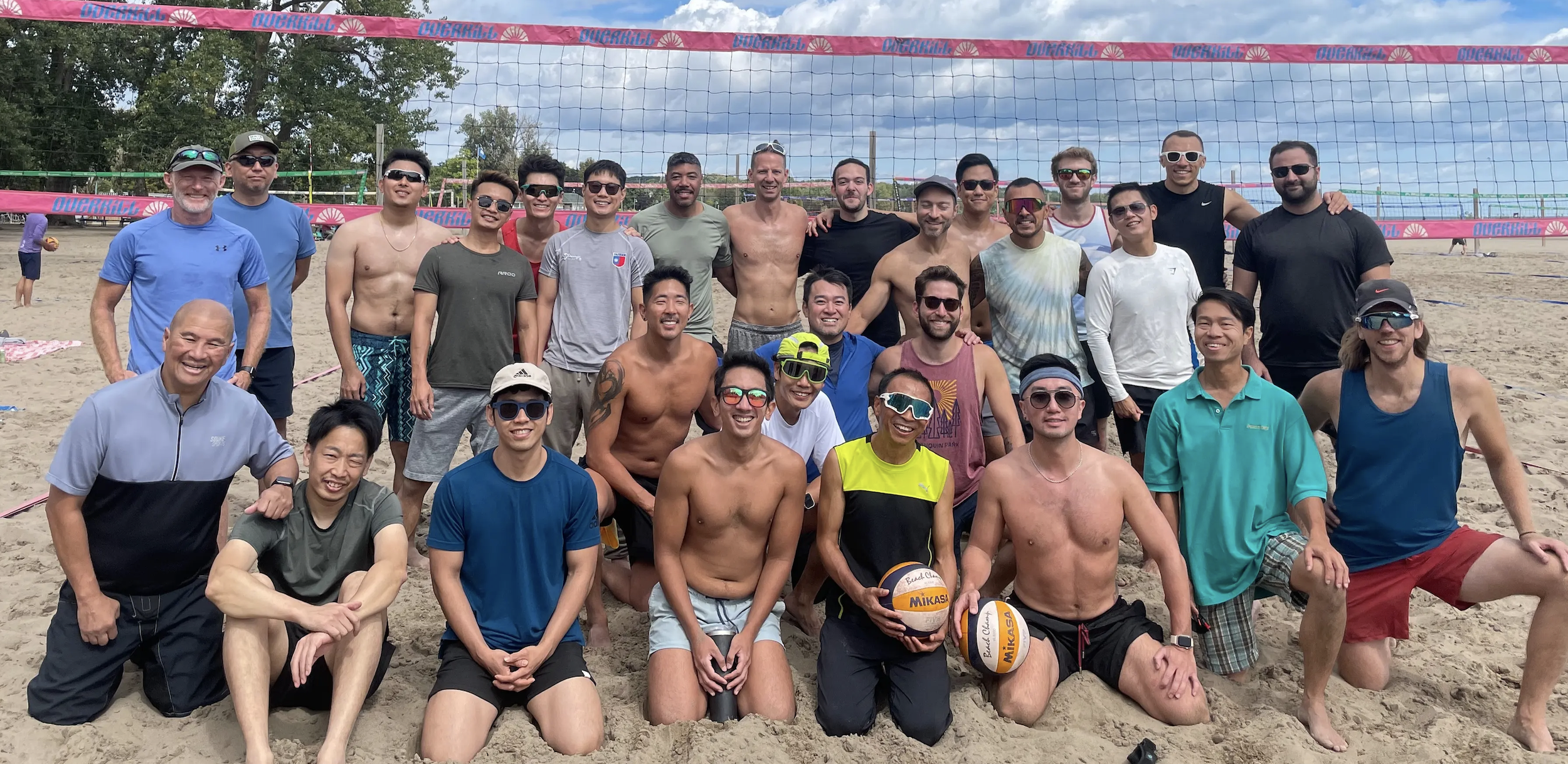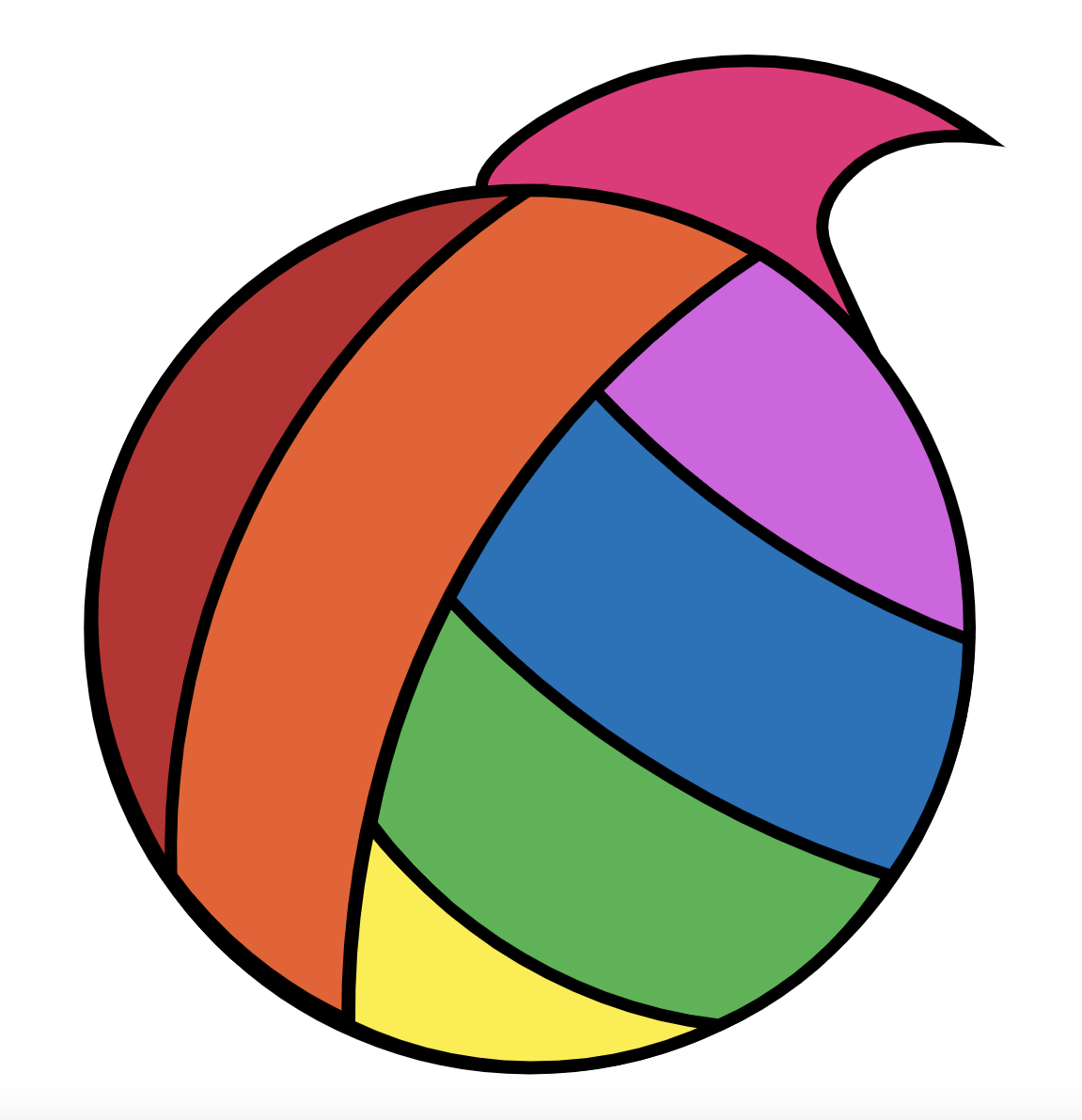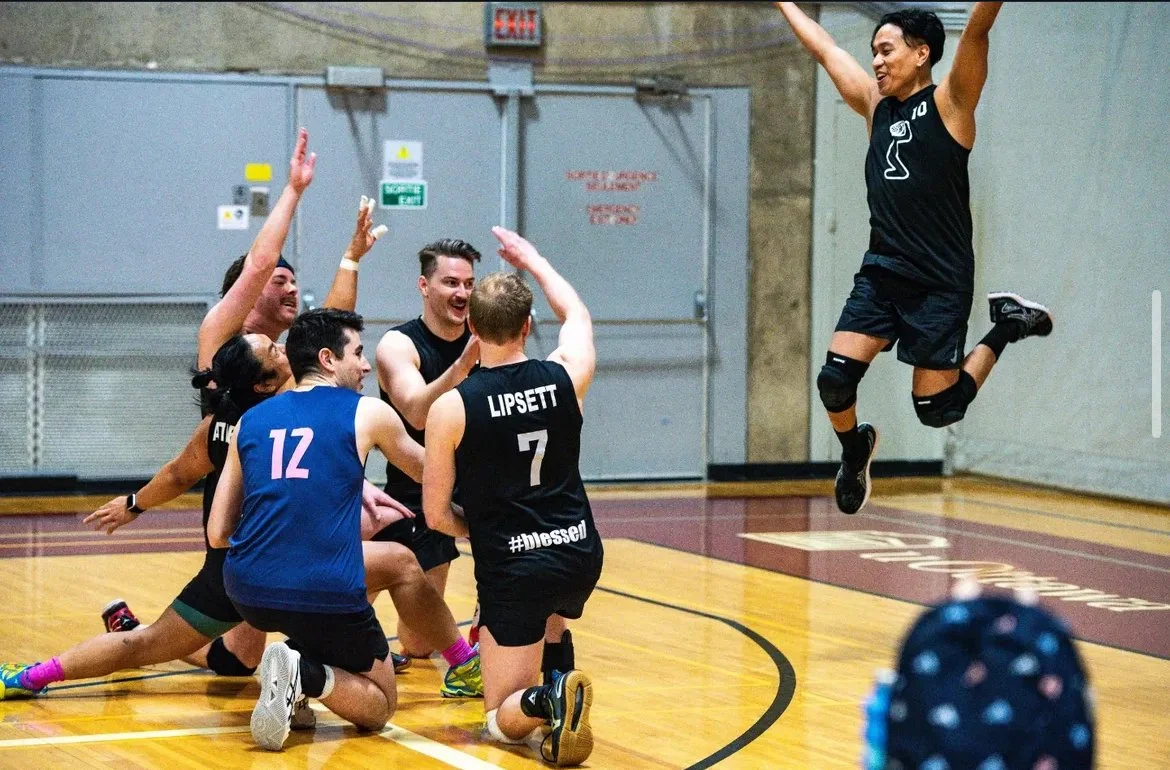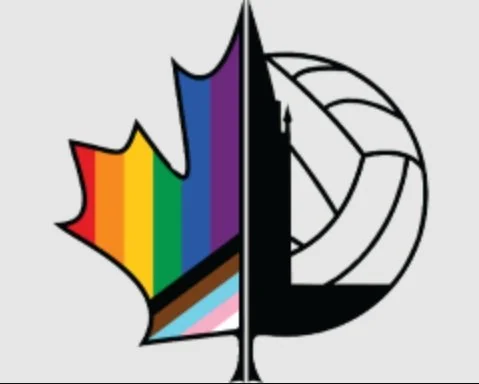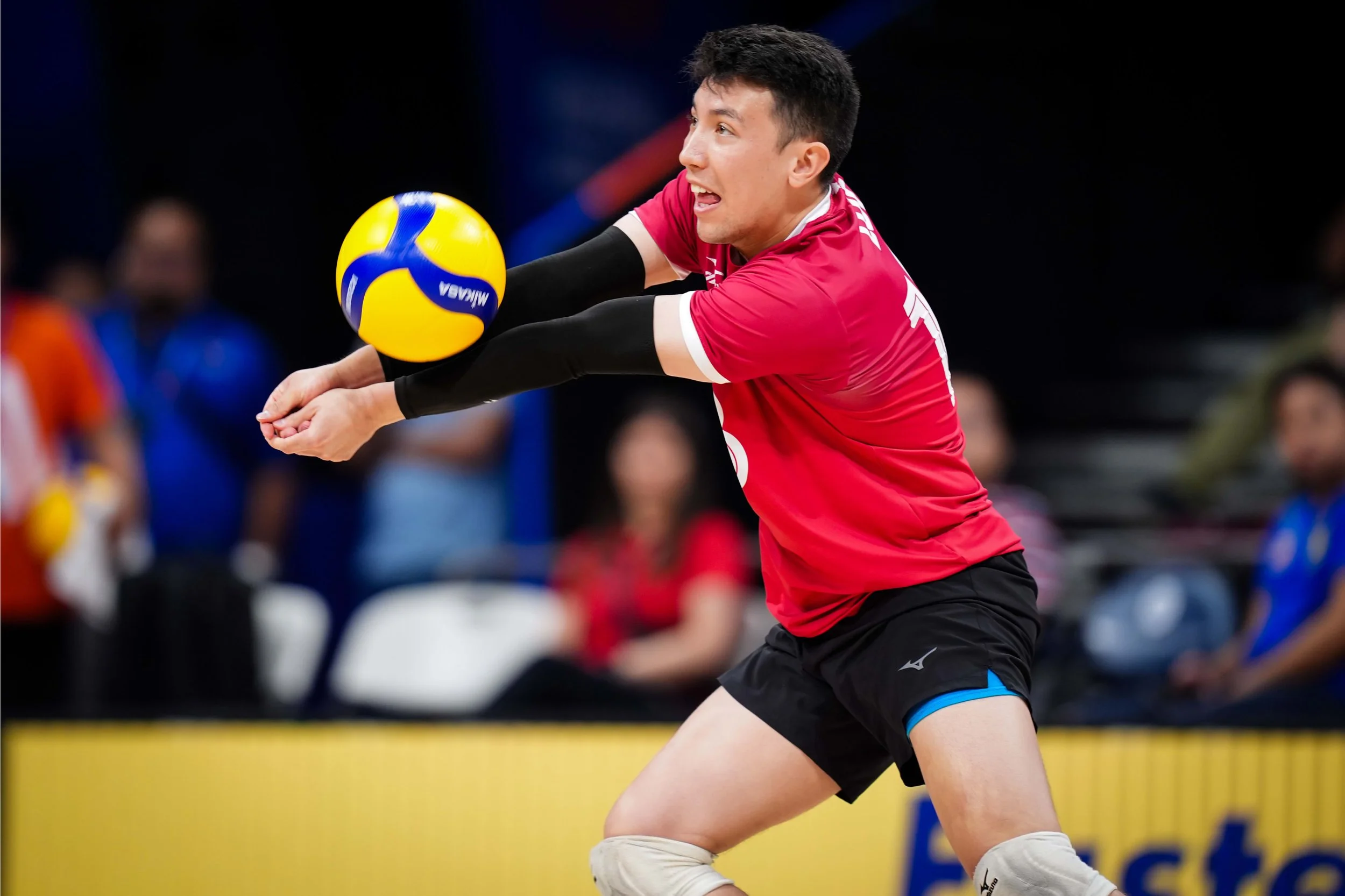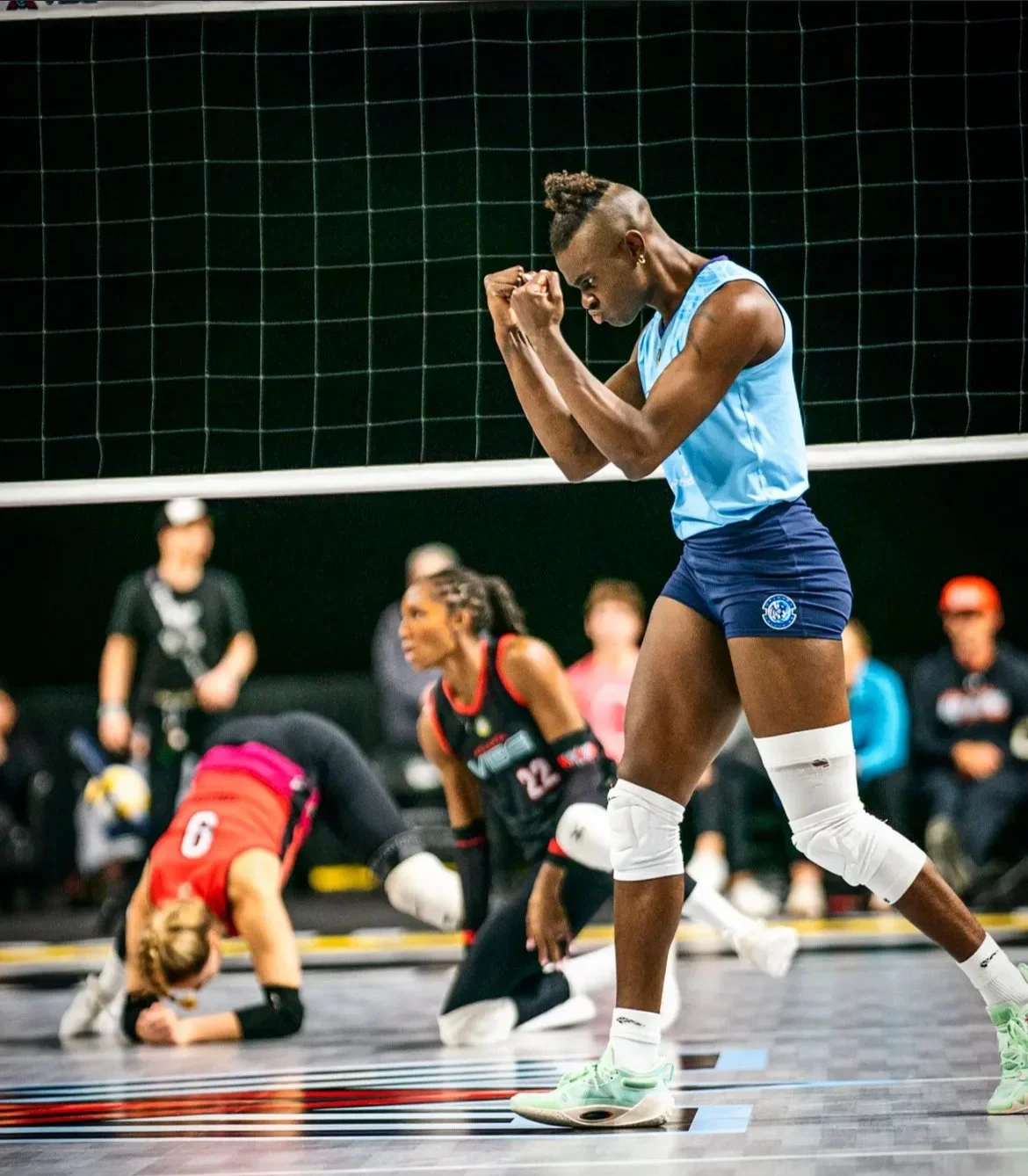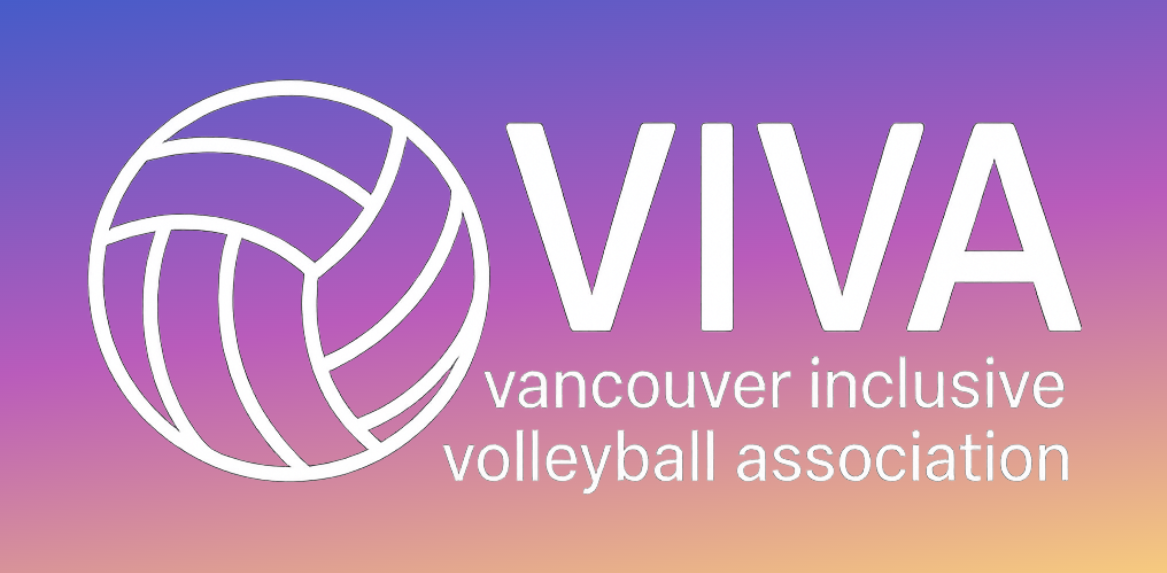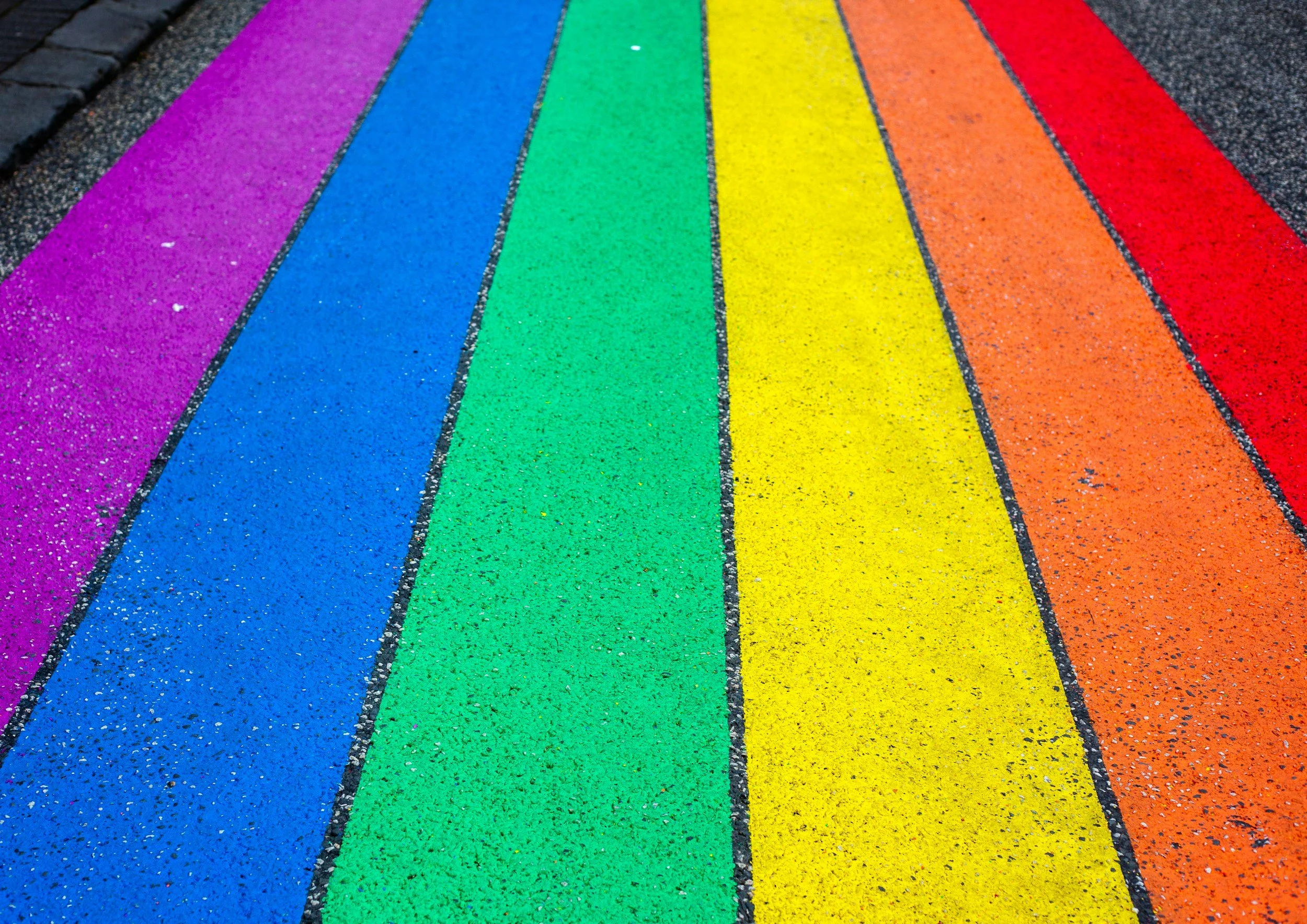
Volleyball United’s PRIDE feature
Showcasing LGBTQ+ people and Organizations in our volleyball community for Pride month
LGBTQ+ athletes often face discrimination in sports, from unfriendly environments, lack of support, fear of harassment or avoidance, and more. Many feel they have to hide important parts of themselves just to play the sports they love. This kind of stress can make it harder to perform at one’s best and can significantly affect happiness and well-being.
We want to ensure that the volleyball community is a welcoming place for everyone, regardless of who they love or how they identify. This Pride month, Volleyball United is proud to showcase amazing LGBTQ+ athletes, coaches, and organizations in the volleyball community. By sharing stories and celebrating their achievements, we hope to reach those who need to hear that they belong in this sport. We want everyone to see themselves reflected in our community and know that there is a safe, welcoming space for you here. By sharing these inspiring organizations and individuals, we hope to demonstrate that volleyball is a sport for everyone and help people discover a connection and sense of belonging in the volleyball world.
Chris Voth
Chris Voth is a Canadian former professional volleyball player who was a part of the Canadian men’s national volleyball team and made history as Canada’s first active openly gay national team athlete. He is currently the Head Coach with the Winnipeg Wesmen men’s volleyball program and will head coach the U21 Canadian Men’s team at the 2025 World Championships in China.
During his career, Chris competed at the highest levels of the sport, representing Canada on the National Team and playing professionally for clubs in the Netherlands, Finland, and the Czech Republic. Chris retired from playing and turned to focus more on his coaching career, and has coached teams in the Netherlands, Sweden and various Canadian National team programs before starting his USPORTS coaching career with Winnipeg.
How has volleyball shaped your identity or community?
Volleyball has been my vehicle for personal growth because it constantly pushed me to evolve, not just as a player but as a person. The sport demands resilience, communication, and emotional intelligence, and I had to develop all of those to thrive on a team. One of my mottos growing up was to “Swing for Hands,” which I spoke about in a TEDx talk about a decade ago. Additionally, aside from how to navigate pressure, I learned how to lead with empathy and how to stay grounded through both success and failure. Each season forced me to reflect, adjust, and grow. It became a space where I discovered my values, my leadership style, and the kind of teammate and human I want to be.
What would you tell a young LGBTQ+ athlete?
You don’t have to choose between being yourself and being an athlete, you get to be both. There’s incredible strength in authenticity. The path might not always feel easy, but your presence in sport matters more than you know. You’re not alone, and there are people cheering for you just as you are. Keep playing, keep showing up, and know that who you are is not just valid, it’s powerful.
Toronto SandSharks
The Toronto Sandsharks have been bringing LGBTQ+ beach volleyball players together since 1998, creating an inclusive community at Woodbine Beach that welcomes everyone regardless of skill level or background. This volunteer-driven organization has spent over 25 years providing a space where players feel safe, supported, and free to be themselves.
What started as a small group of friends playing volleyball has grown into a thriving community that shows how sports can break down barriers and build lasting connections. The Sandsharks prove that when you combine volleyball and inclusivity you can create something much more powerful than just a recreational league.
Pride Capital Volleyball
Ottawa, ON
Pride Capital Volleyball (PCV) is a volunteer, non-profit volleyball organization that promotes volleyball and the well-being of the LGBTQ+ community of the National Capital Region by offering fun, inclusive, and positive spaces for LGBTQ+ people and allies of all skill levels.
The organization offers indoor and beach tournaments and leagues, as well as skill development sessions. Pride Capital Volleyball’s vision is that all members and friends of the LGBTQ+ community feel that they have the opportunity to participate, develop, and excel in the sport of volleyball at the level of their choice, in a safe, inclusive and encouraging environment.
Justin Lui
When I was younger, I tried so hard to hide my external identity of being a gay man for fear of not being accepted. The concealment of my identity influenced the way I communicated, the way I dressed, the way I spoke - all things that others could see. But more subtly, I think it also affected my internal identity. I never felt comfortable showing up as my authentic self. I always took on a role as a way to “fit in”, and as such, lost out on genuine emotional connection with other people. I also noticed that I ascribed value to high-achievement above all else as a way to cover myself. If I was so busy striving for my ambitions, questions about my sexuality could rarely be asked, both by myself and others. This internal identity, one that was seemingly mine yet at the same time so foreign, never seemed to match with my external identity. I was out of alignment.
It wasn’t until coming out, when I felt comfortable sharing my external identity as a gay man, did my internal and external identities begin to align. And it was at this point my experience as an athlete began to shift too. I was no longer afraid to show up as my authentic self, one that is energetic, silly, and sensitive, even in sports settings. I felt that being open also gave me the space to now reflect on what mattered to me. Rather than operating out of a place of fear, I now operate from a place of deep meaning.
Navigating the sports world as an openly gay man, I find myself still struggling to fit into the more masculine culture and falling back into my conditioned patterns of isolating myself away from my teammates as a way to protect myself from being rejected. But at the same time, having gone through the experiences I went through, I also feel more resilient and capable of handling these and other challenges. I also believe I have a self-awareness and sense of empathy that allows me to show up in this sports world with more capability to perform and preserve through difficulties. I am immensely proud of my external identity as a gay man and how it has shaped who I am today.
What does Pride mean to you in the context of sport?
Pride means so many things to so many different people, but to me, it’s always been about community and expression.
I remember when I came out, I had various athletes and people who work in the sports world, reach out to me to offer their support and thank me for my courage. It was a simple act, yet one that was profoundly meaningful to me. And I think this is what Pride in the sports world is about. It’s about the community of a small number of visible LGBTQ+ individuals offering support to one another in a world where we are not highly represented.
I have also learned that Pride in sport is about expression. I am still learning to understand what that means for me in particular, but I know it has to do with showing up every day as my authentic self. It is, for me, about never betraying the person I am meant to be, no matter the situation. Whether it be judgment from teammates, fans, opponents, etc., I must show up as myself, and be able to express myself fully.
In this way then, pride is about the strength of LGBTQ+ individuals - physical, emotional, personal - to be proud of who they are and to support one another in that endeavor.
Justin Lui is an Olympic athlete on the Canadian Men’s National Team and has played professionally in Finland and Croatia. He played for Stanford University, where he first came out to his team, and has become an important voice for LGBTQ+ representation in high-level volleyball ever since. Justin joined the National Team in 2022 and played in the 2024 Paris Olympics. Justin is passionate about giving back to the sport through coaching and helping the next generation attain their volleyball goals.
Justin’s story is a great representation of the power of authenticity in sport - how being true to yourself doesn’t limit your potential but fuels success and inspires others along the way.
How has your identity shaped your experience as an athlete?
I think for many of us, we wrestle with two identities in life: the external one that is portrayed to the world, whether it be sexuality, race, ethnicity, etc. and the personal one that guides our internal experience about who we are, what we value, how we show up in the world, etc.
Toronto Spartan Volleyball League
As Canada’s largest LGBTQ+ single-sport organization, the Toronto Spartan Volleyball League (TSVL) brings together over 650 members who share a passion for volleyball and community. The TSVL is a grassroots, volunteer-led organization and has transformed how LGBTQ+ athletes experience organized sports in Toronto, creating space where competition and camaraderie go hand in hand.
With its three tiers of league levels, it is a great option for both beginner players and the more advanced. What really makes the TSVL special is that they have built an environment where athletic ambition meets social acceptance, allowing players to pursue their competitive goals while being authentic about who they are. Whether someone is looking to improve their volleyball skills, meet like-minded people, or simply have fun in a supportive setting, the TSVL offers a home where every serve, set, and spike is celebrated.
Shainah Joseph
Shainah Joseph is a Canadian professional volleyball player from Ottawa, Ontario, with an amazing athletic career under her belt. Shainah attended the University of Florida, where she played in the SEC Division and studied Telecommunications. She has been a member of the Canadian women’s volleyball team for almost a decade and has played professionally in Bulgaria, Taipei, the Philippines, Japan, the United States, France and Portugal.
How has your identity shaped your experience as an athlete?
When I was younger, I always felt like a tomboy. Sometimes I felt ashamed or different because I wanted to dress differently from everyone else. But participating in sports made me feel more comfortable and less vulnerable to criticism about the way I presented myself. In many ways, being an athlete helped me feel more secure and confident in who I am, even before I was ready to come out or fully understand my sexuality. Honestly, when I’m part of a team, I don’t feel any different from my teammates. The sports environment is all about competition and performance. But on a personal level, I’ve always felt supported and encouraged by both my teammates and coaches to be authentically myself. My sexuality isn’t my entire identity, and it doesn’t define me. What matters most is the kind of person I am, how I treat others, and what kind of teammate I strive to be.
I believe sports celebrate talent, dedication, and hard work. So as long as I did my job and showed up as a good teammate, people appreciated me for what I brought to the table. That gave me a strong sense of belonging. When I first came out, one of my biggest concerns was not wanting my teammates to treat me any differently, especially since we shared locker rooms, traveled together, roomed together, and used communal showers. I never wanted to be perceived as “the girl checking out her teammates” or someone who made others uncomfortable. Just because I’m attracted to women doesn’t mean I’m attracted to my teammates. My team was my family, and I always treated them with that same respect. And they treated me the same way with love, support, and even more openness, because I wasn’t hiding anymore. I was living as my full self.
What advice would you give to young LGBTQ+ athletes?
The best advice I can give is to fully embrace who you are and to live unapologetically as your authentic self. When you do that, you not only give yourself the freedom to thrive, but you also inspire other teammates, coaches, fans to accept people for who they truly are. By simply being yourself, you give others permission to do the same. You never know who’s watching and who might be finding courage in your story to begin their own journey of self-discovery and acceptance.
What would you like to see more of from teams, clubs, or leagues when it comes to inclusion?
I strongly believe in the power of normalizing difference. Inclusion means everyone is treated fairly and equally, and everyone is given the space to express themselves freely. Whether through how they look, how they celebrate, or how they show up as individuals. The more we normalize LGBTQ+ identities in sports, the less we’ll need moments like “coming out.” Ideally, being LGBTQ+ won’t be treated as a defining difference, but simply as one part of who someone is, just like being straight. At the end of the day, we’re all just human. We love who we love, and we are who we are.
What does Pride mean to you in the context of sport?
To me, Pride means being proud of who you are and proud of the journey it took to get there. Everyone’s path to self-discovery and acceptance is different, and it takes time to understand what matters to you and how to express that. But when you finally reach that place of confidence, self-worth, and acceptance, it’s something worth celebrating. Just like athletes are praised for what makes them unique, Pride is about celebrating the beauty of those differences and the strength it takes to live them out loud.
The Vancouver Gay Volleyball Association (VGVA) is a provincially registered non-profit society and one of the longest-operating volunteer-organized sports groups in British Columbia's Lower Mainland. VGVA promotes a gay-positive and inclusive environment that focuses on volleyball play, fitness, and—most of all—lots of fun!
Offering a range of divisions from beginner to competitive levels, VGVA provides opportunities for players of all skill levels to participate. The organization hosts several tournaments throughout the year, including the annual Queen Vicki tournament, sanctioned by the North American Gay Volleyball Association (NAGVA), and the Homovember indoor tournament.
VGVA's commitment to inclusivity and community engagement makes it a cornerstone of LGBTQ+ sports in Vancouver.
